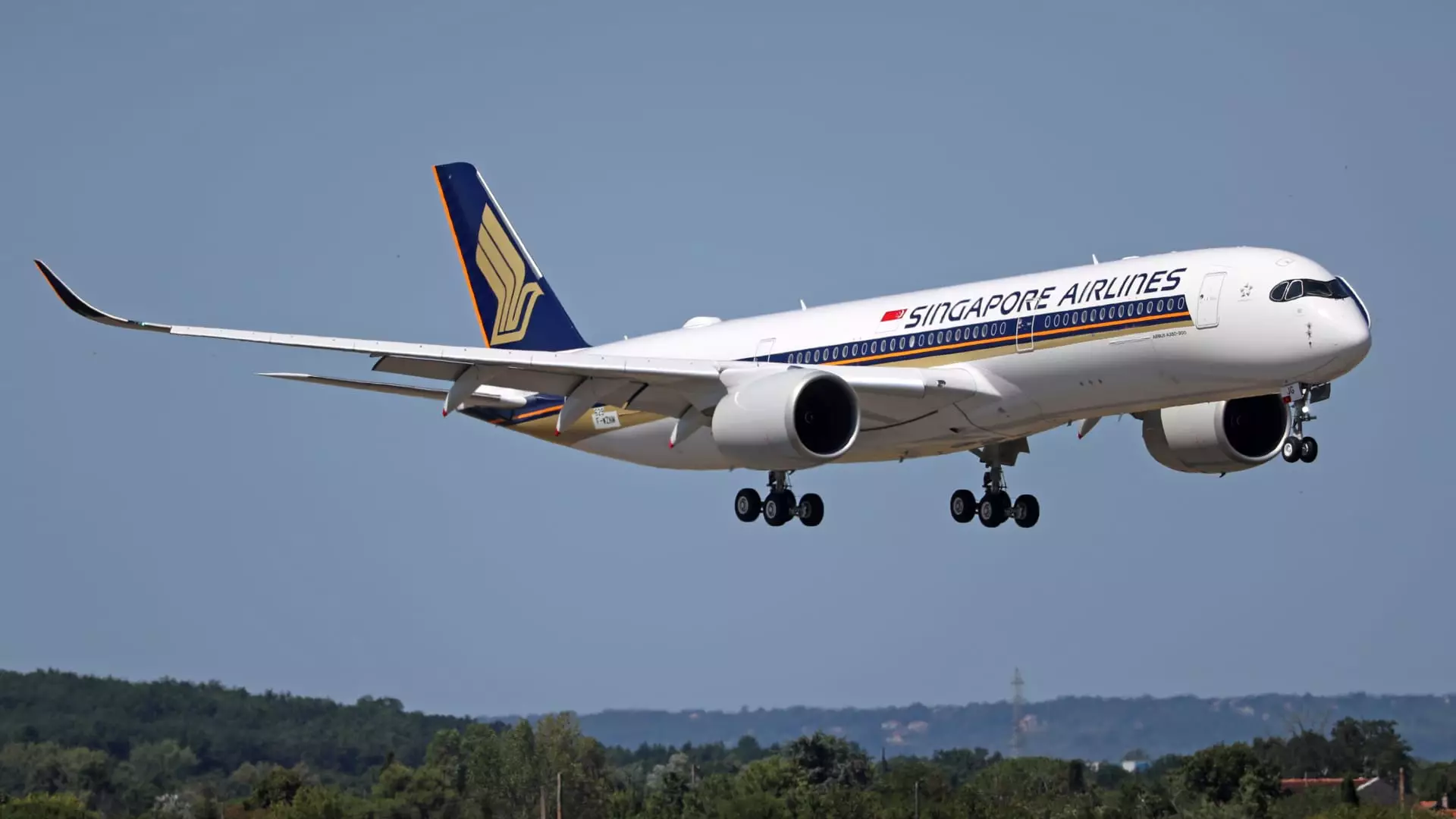Singapore Airlines is embarking on a bold transformation aimed at enhancing the travel experience for its elite clientele. With plans to introduce a four-seat first-class cabin on selected Airbus ultra-long-range aircraft, the airline is looking to attract high-spending travelers willing to commit to flights exceeding 17 hours. This initiative is indicative of a broader trend within the airline industry, where the battle for premium passengers has intensified in recent years.
Strategic Aircraft Upgrade
The airline’s focus on its Airbus A350-900 URLs represents a strategic move, particularly for routes like the prestigious New York to Singapore flight, which is among the longest journeys offered commercially. The addition of first-class seats on seven of these aircraft caters specifically to affluent travelers, enhancing Singapore Airlines’ reputation as a leader in luxury air travel. This upgrade not only addresses the demand for exclusive travel experiences but also demonstrates the airline’s commitment to pushing the boundaries of passenger comfort.
In addition to first-class seats, the cabin revamp will introduce revamped business-class environments. These features will likely include the increasingly popular sliding door suites, which provide an additional layer of privacy—a significant selling point in today’s travel marketplace. Singapore Airlines’ CEO, Goh Choon Phong, hinted that these innovations will redefine the concept of luxury in modern aviation.
As airlines globally strive to elevate their premium cabin offerings, the competition has reached new heights. Singapore Airlines is joining other major carriers in investing significant sums—approximately S$1.1 billion (around US$835 million)—for comprehensive upgrades to their long-distance Airbus A350 fleet. This financial commitment illustrates the airline’s understanding of the value placed on comfort and luxury by modern travelers.
In total, the retrofit will adjust the seating configuration by retaining 42 business class seats while increasing the number of business-class offerings. The introduction of first-class seats raises the total business-class count from 67 to 70, yet will reduce the number of premium economy seats available—highlighting a strategic decision to cater to wealthier customers amid limited space on these long-haul flights.
While Singapore Airlines is enhancing its first-class offerings, the larger context of the airline industry reveals a contrasting trend among U.S. carriers. Many of these airlines are phasing out traditional first-class cabins in favor of expansive business-class configurations. American Airlines, for example, is retrofitting Boeing 777s to include one extensive business class, comprised of 70 seats, moving away from separate first-class spaces. This shift indicates an evolutionary process within the airline industry, where customer preferences are being redefined in favor of more spacious and luxurious business class options.
Moreover, the post-pandemic rebound in travel demand has pressured airlines to reassess their seating strategies and cabin designs amid ongoing supply chain challenges. While some establishments are refraining from reintroducing first-class offerings, others, like Lufthansa, plan to debut new first-class suites soon, indicating that premium travel remains a viable revenue segment for certain airlines.
As the landscape of air travel transforms, Singapore Airlines’ commitment to evolving its high-end offerings reflects a deeper understanding of customer priorities. By tailoring experiences around privacy, comfort, and luxury, the airline stands to set itself apart from competitors. The anticipated unveiling of the newly designed cabins in mid-2026 is eagerly awaited within the aviation sector and will likely set a precedent for future innovations.
The convergence of various strategies across the airline industry highlights the critical role that passenger preferences play in shaping the evolution of premium offerings. As carriers reassess and redefine their approach to luxury travel, the competitive atmosphere will continue to push boundaries.
Singapore Airlines’ ambitious cabin revamp is more than just an upgrade; it symbolizes a forward-thinking approach to luxury air travel that could resonate with affluent passengers while prompting other airlines to reconsider their own offerings. This evolution signifies a new era where comfort and exclusivity reign supreme in the skies.

